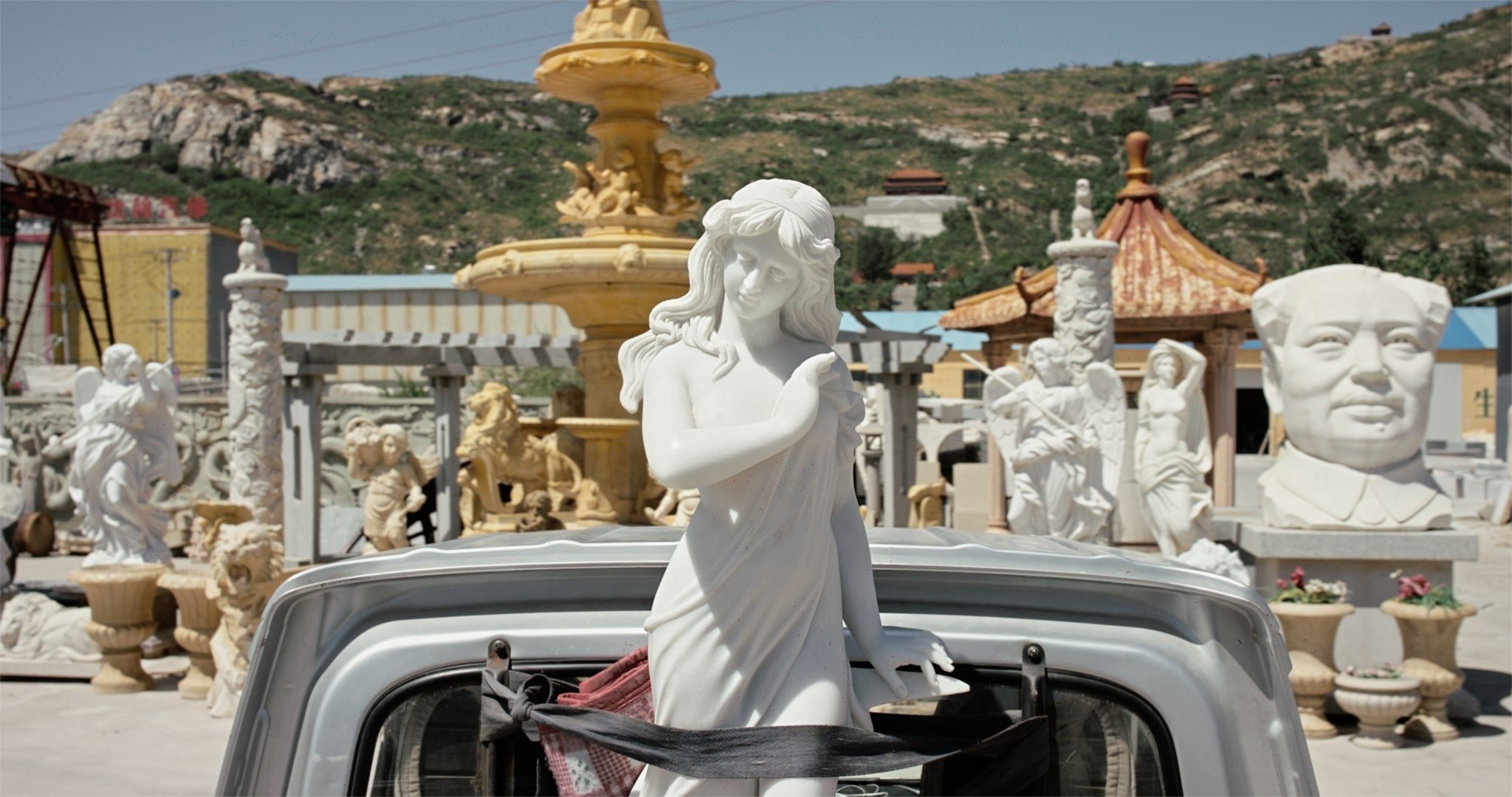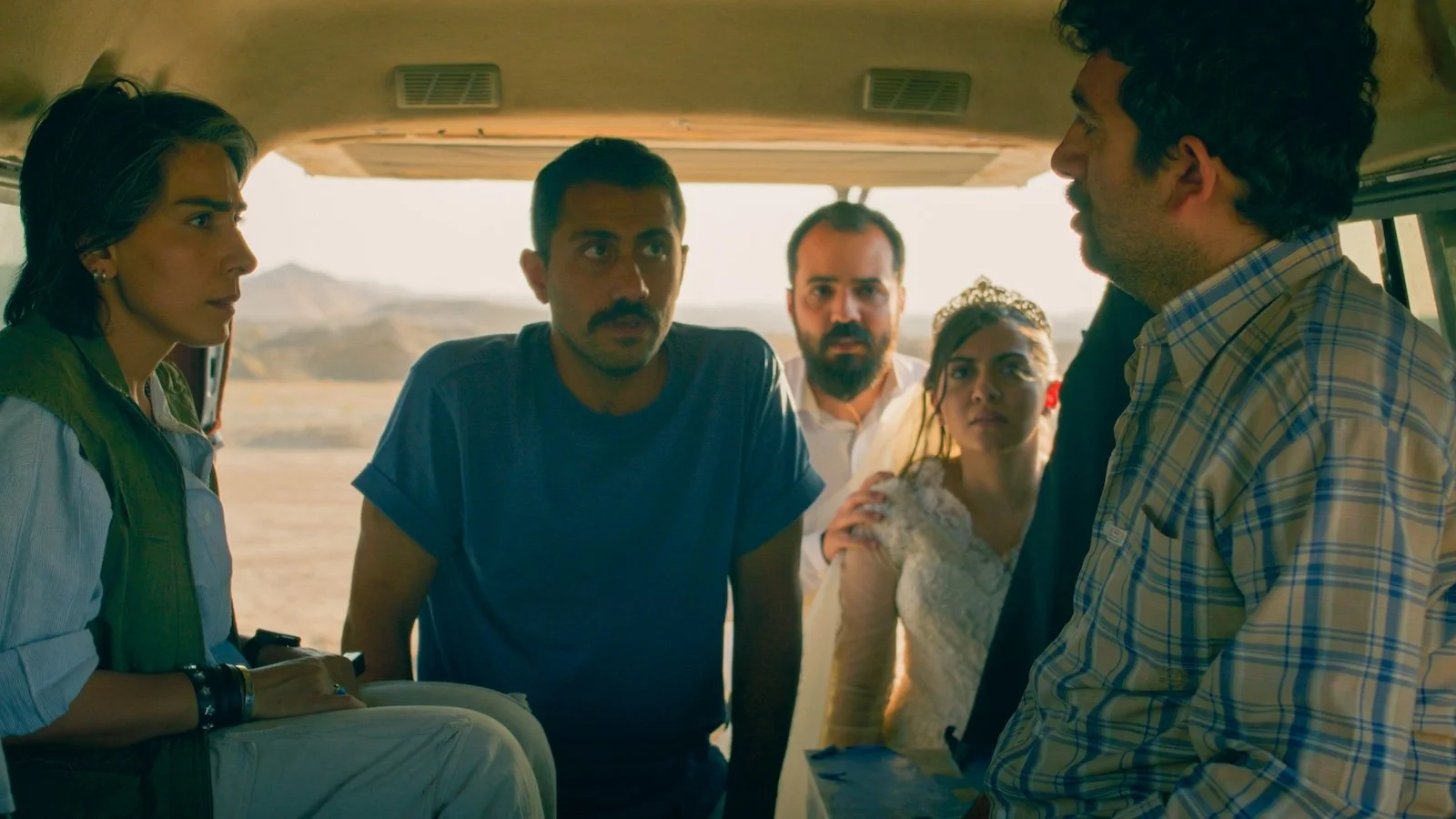Hot Docs 2022: A Marble Travelogue
We live in a globalized world, but most people only have half an understanding of what that phrase means. Sean Wang’s A Marble Travelogue seeks to fill in the understanding, but not through a surplus of information, graphics, statistics, and the usual talking heads of an expository documentary, but through a sensory experience that charts the journey of a marble slab from a hillside in Greece to Quyang, China and back again. It seeks to have the viewer experience what globalization looks and sounds like and not just understand it on an intellectual level.
Wang’s film is an observational documentary, with an unobtrusive, quiet style and no voiceover, talking heads, or on-screen graphics save for some title cards explaining geographic locations. It’s what generous viewers describe as “deliberately paced,” or what harsher critics might term “boring.” However, the film’s quiet approach disguises a lot of humour and some clever visual and cultural juxtapositions. It’s not quite what I’d describe as riveting entertainment, but it is consistently engaging and presents some thoughtful observations about our modern world as well as a considerable dose of visual wit.
A Marble Travelogue explores globalization through the relationship between Greece and China: one, a floundering European power, the other the emerging superpower of the East. It begins in a Greek quarry where a Chinese businessman selects a particularly appealing slab of marble to ship to China. We follow the slab to Piraeus, the Port of Athens, then to the Chinese port city of Quanzhou, then to Quyang, “the Chinese capital of carving,” where we watch the marble transformed into statues and columns for Chinese mansions and amusement parks. There’s a detour to an amusement park featuring recreations of European monuments (which references Jia Zhangke’s The World) before we head to the factory floors of Quyang, where Chinese workers turn the marble dregs into fridge magnets and other souvenirs for European attractions. We then follow these souvenirs back to Greece where they’re sold on the tourist island of Santorini to—you guessed it—Chinese tourists. The film presents the global supply chain as an ouroboros, a closed loop of consumption.
Along the way, Wang follows two beautiful Greek twin sisters who work as sales reps and influencers for their father, a wealthy Greek businessman. They model at Chinese trade shows and arrange for business dealings in perfect Mandarin, all while adorned in elaborate costumes recalling ancient Greek deities. We also meet a Chinese master of carving, who became a titan by popularizing Western classic styles for Chinese decoration, as well as a factory worker, who has her three young children painting magnets alongside her in a factory. The whole approach is dizzying in its juxtapositions. It captures the absurdity of our modern world, shifting from mansions with appalling Western decorations to cramped factory spaces to anonymous conventional halls where Greek women speak perfect Mandarin to admiring Chinese businessmen who ask them whether they like Chinese men.
Wang can’t help but bring out the humour in the material. A shot early on cuts from the columns of the Temple of Zeus to similar columns, only for a roller coaster cart to enter the frame and skewer our geographic understanding. It’s as if to show that in our modern world, the great masterworks of antiquity are simply inspiration for decorations in an amusement park, nothing more.
The film also has a procedural hook that’s appealing to anyone who likes exposition delivered in a purely sensory manner. You watch the marble slab move from Greece to China, become statues, then magnets, and journey back again. It charts an unbroken line in the global supply chain, demystifying something we constantly read about in our headlines, but don’t understand on a sensory level. It provides a concrete example for abstract discussions of “global supply chains.”
You won’t come out of the film with more than a basic understanding of the supply chain, but the sensory approach is the correct one for this material. There’s a film to be made about the relationship between Greece and China and the global supply chain that has more facts and figures, more expository authorities, more educational points to share with a viewer, but that film would lose the wry humour and experiential approach of this one. Some people learn by reading, others learn by listening, and even others learn by observing. Understand which one you are and go into A Marble Travelogue with an openness to its expository approach. It will reveal the workings of our global world, but not in quite the way you think.
7 out of 10
A Marble Travelogue (2021, The Netherlands/Hong Kong/France/Greece)
Directed by Sean Wang.



Nia DaCosta’s sequel to 28 Years Later pits two competing theologies of death against each other.